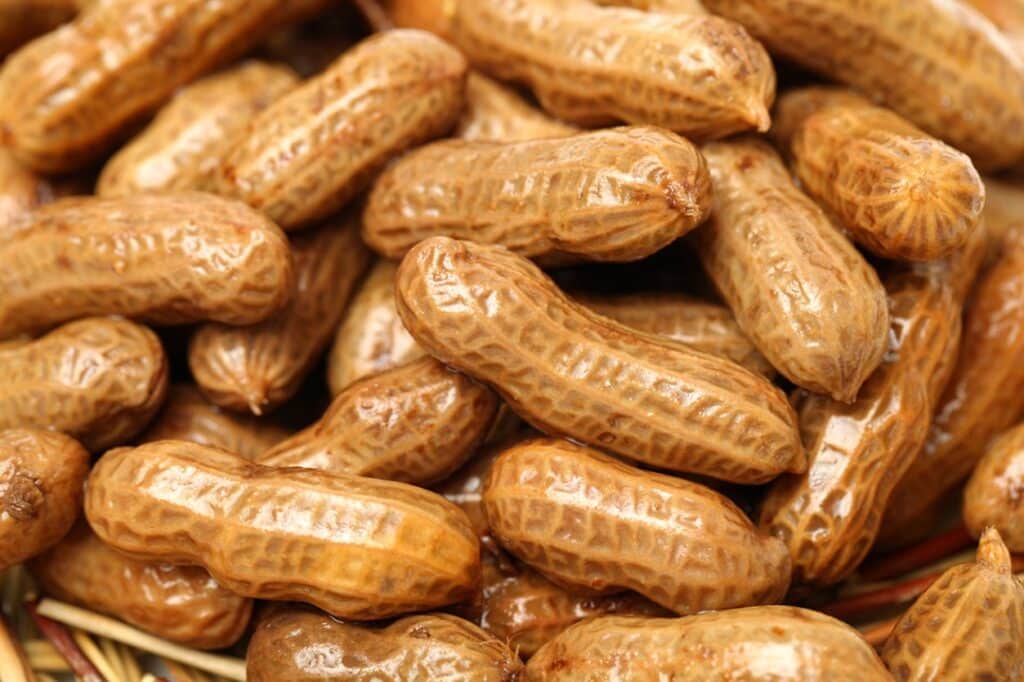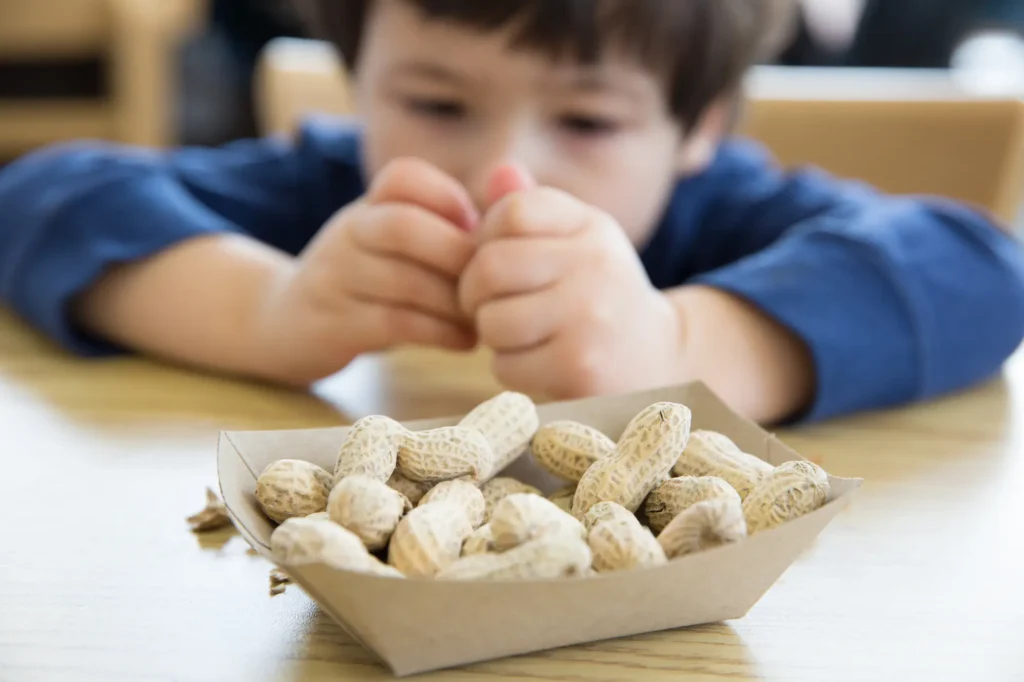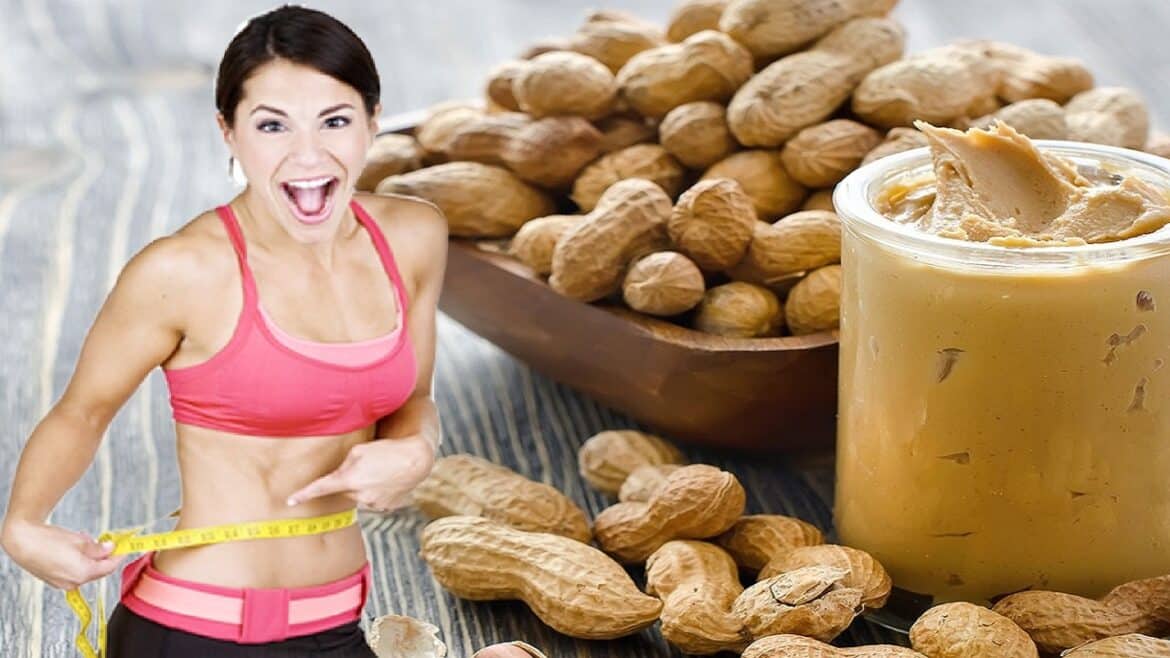Introduction
Are Boiled Peanuts Good For Weight Loss: The choices we make in our daily diet play a pivotal role. Amidst the vast array of foods and snacks, boiled peanuts have emerged as a popular and intriguing option. But are these humble legumes truly allies in the battle against excess pounds. Embarks on a journey to uncover the truth about this Southern delicacy and its potential impact on shedding those unwanted pounds.
From protein content to fiber-rich qualities and the role of portion control, the factors that make boiled peanuts a subject of curiosity for those seeking a healthier lifestyle. To separate fact from fiction and discover whether these savory treats can indeed contribute to your weight loss goals. In the ever-evolving landscape of dietary choices for weight management, one question that frequently arises is the role of boiled peanuts in this journey. These unassuming legumes, often enjoyed as a Southern comfort food, have garnered attention for their potential impact on weight loss.
A quest to unravel the mysteries surrounding this Southern staple. Through a deep dive into the nutritional nuances of boiled peanuts, we aim to shed light on whether they can indeed serve as allies in the battle against excess weight. The protein content, fiber-rich nature, and the crucial importance of portion control, the science and strategies behind incorporating boiled peanuts into a balanced diet.

Is it good to eat boiled peanuts everyday?
Vitamins E and B, which are crucial for the growth and development of muscles and organs, are also present in boiled peanuts. Your daily thymine needs can be met with just half a cup of boiled peanuts. It offers minerals, such as magnesium, which is a nutrient that must be included in everyday meals.
Benefits:
Nutrient Content: Boiled peanuts are a source of various essential nutrients, including vitamins (such as vitamin E and B), minerals (like magnesium), and protein. These nutrients are crucial for overall health, muscle development, and organ function.
Fiber: Peanuts, even when boiled, retain a significant amount of dietary fiber. Fiber is essential for digestive health, and it can also help you feel full and satisfied, potentially aiding in weight management.
Protein: Peanuts are relatively high in protein, making them a valuable source of plant-based protein. Protein is important for muscle repair and growth.
Healthy Fats: Peanuts contain monounsaturated and polyunsaturated fats, which are considered heart-healthy fats. Including these fats in your diet can support heart health.
Considerations:
Calories: While peanuts are nutrient-dense, they are also calorie-dense. Eating them in large quantities can contribute to your daily calorie intake. If you’re not mindful of portion sizes, it could potentially lead to weight gain rather than weight loss.
Allergies: Peanut allergies are relatively common, and consuming boiled peanuts daily may not be suitable for individuals with peanut allergies. Always be cautious if you or someone you are serving has a peanut allergy.
Variety: It’s essential to maintain dietary variety to ensure you’re getting a wide range of nutrients from different foods. Relying solely on boiled peanuts as a daily snack may lead to nutrient imbalances.
Salt Content: Boiled peanuts are often prepared with salt, which can contribute to sodium intake. High sodium intake may have negative effects on blood pressure and overall health. Consider choosing unsalted or lightly salted options.
What is the best time to eat peanuts?
The best time to consume peanuts would be morning or day time. A late afternoon snack of peanuts is also ideal. But should certainly be avoided before bed or at dinner. The timing of when to eat peanuts can depend on your individual preferences and dietary goals.
Morning or Daytime: Consuming peanuts in the morning or during the daytime can be a good choice. They can provide a source of energy and nutrients to help you stay alert and focused during your daily activities.
Late Afternoon Snack: peanuts can serve as a satisfying and nutritious late afternoon snack. If you experience hunger between lunch and dinner, a handful of peanuts can help curb your appetite and prevent overeating later in the evening.
Pre-Workout: Peanuts can be a suitable pre-workout snack for some individuals. They provide a combination of protein and healthy fats, which can offer sustained energy during exercise.
Avoid Before Bed or Dinner: It’s advisable to avoid eating peanuts right before bedtime or as a part of your dinner. Peanuts are calorie-dense, and consuming them close to bedtime may not align with your body’s natural energy expenditure patterns during sleep. Additionally, for some people, eating a heavy meal, including peanuts, before bedtime can disrupt sleep.
As a Component of Meals or Snacks: Peanuts can be included as part of your meals or snacks. For example, you can sprinkle them on salads, add them to yogurt, or incorporate them into trail mix for a balanced and satisfying option.
Consider Dietary Goals: If you’re consuming peanuts for specific dietary goals, such as weight management or muscle building, it’s essential to incorporate them into your overall daily calorie and nutrient plan.
Which is better: raw or boiled peanuts?
You will be surprised to know that boiled peanuts have an antioxidant profile which is better than raw or roasted peanuts. These antioxidants can have anti-ageing benefits for the skin. The same antioxidants can give you a good dose of Vitamin B6.Both raw and boiled peanuts have their own set of advantages and may be better suited to different preferences and dietary needs. Here’s a comparison of raw and boiled peanuts.
Raw Peanuts:
Nutrient Density: Raw peanuts are generally considered more nutrient-dense than boiled peanuts. They retain their natural vitamins, minerals, and antioxidants.
Less Sodium: Raw peanuts have no added salt, making them a lower-sodium option compared to boiled peanuts, which are typically prepared with salt.
Versatility: Raw peanuts are versatile and can be used in various dishes, from peanut butter to salads and stir-fries.
Boiled Peanuts:
Antioxidants: Boiled peanuts may have a higher antioxidant profile than raw peanuts due to the cooking process. These antioxidants can have potential health benefits, including supporting skin health and providing vitamin B6.
Texture and Flavor: Boiled peanuts have a softer texture and a unique flavor that some people find more appealing than raw peanuts.
Easier Digestibility: The boiling process can make peanuts easier to digest for some individuals, as it softens the nut’s texture.
How long can you eat boiled peanuts?
Fresh boiled peanuts should be kept refrigerated and will keep for about 10 days, possibly longer, in the fridge. For longer storage, boiled peanuts should be frozen. Raw dried peanuts, of the sort that we sell with our kits, keep for over four months in a cool, dark, dry spot.
Refrigeration: Freshly boiled peanuts should be stored in the refrigerator. When kept in an airtight container, they can remain good for about 10 days, possibly longer, in the fridge. It’s important to keep them chilled to prevent spoilage.
Freezing: If you want to extend the storage life of boiled peanuts, freezing is a suitable option. Boiled peanuts can be frozen for longer-term storage. Place them in airtight containers or freezer bags, removing as much air as possible to prevent freezer burn. Properly frozen boiled peanuts can last for several months in the freezer.
Dried Peanuts: Raw dried peanuts, which are typically used for boiling, can have a longer shelf life when stored in a cool, dark, and dry place. When stored correctly, they can remain good for over four months. It’s important to protect them from moisture and humidity, which can cause spoilage.
Do you eat boiled peanuts cold or hot?
Enjoy them either way, both are delicious. Are boiled peanuts mushy. Boiled peanuts should be tender but can become mushy if overcooked.
Hot Boiled Peanuts:
Hot boiled peanuts are typically served shortly after they’ve been cooked. They are warm and have a softer texture.
Many people prefer hot boiled peanuts for their comforting and savory appeal, especially when enjoyed as a snack on a chilly day.
The warmth can enhance the flavors and make them more enjoyable during cooler seasons.
Cold Boiled Peanuts:
Cold boiled peanuts are peanuts that have been boiled and then refrigerated or chilled before serving.
Some people prefer the cool, refreshing quality of cold boiled peanuts, especially in hot weather or as a chilled snack.
Chilling boiled peanuts can also alter their texture slightly, making them firmer and denser compared to their hot counterparts.
Why do people eat boiled peanuts?
The process of boiling peanuts draws antioxidants from their shells. The boiled peanuts have four times the antioxidants of raw or roasted peanuts. Boiled peanuts have also been studied as a potential way to treat people with peanut allergies since boiling peanuts denatures proteins that trigger allergic reactions.
Flavor and Texture: Boiled peanuts have a unique and savory flavor that many people find appealing. The boiling process infuses the peanuts with a salty and briny taste, making them a flavorful snack or side dish. Additionally, the boiling softens the peanuts, giving them a tender and slightly firm texture.
Cultural and Regional Traditions: Boiled peanuts are a beloved Southern delicacy in the United States, particularly in states like Georgia and South Carolina. They are often associated with cultural and regional traditions, such as tailgating at football games or enjoying them at roadside stands.
Health Benefits: Boiled peanuts offer potential health benefits. As mentioned, the boiling process can draw antioxidants from the peanut shells, increasing their antioxidant content. These antioxidants can have various health-promoting properties, including potential anti-aging effects and benefits for skin health.
Potential Allergy Treatment: Some research has explored the potential of boiled peanuts as a treatment for peanut allergies. Boiling peanuts can denature proteins that trigger allergic reactions, making them less allergenic for some individuals. This research is still in its early stages and not widely adopted as a treatment.
Variety in Peanut Consumption: Boiled peanuts provide a different way to enjoy peanuts compared to the more common methods of eating them raw or roasted. For those who love peanuts, boiled peanuts offer a novel and enjoyable variation.
Snacking and Socializing: Boiled peanuts make for a satisfying and shareable snack, making them a popular choice at gatherings, picnics, and social events. Their communal aspect adds to their appeal.
Can I eat boiled peanuts in the morning?
According to dieticians, the optimal time to eat soaked peanuts is in the morning before breakfast. You can also have peanuts as a snack if you feel hungry in between meals. Soaked peanuts will fully enter our body when consumed at its ideal time.
Eating boiled peanuts in the morning is indeed a viable option.
Satiety: Consuming boiled peanuts in the morning can help you feel full and satisfied, which may prevent overeating later in the day. The combination of protein, healthy fats, and fiber in peanuts can contribute to a sense of satiety.
Nutrient Absorption: Eating peanuts in the morning allows your body to absorb the nutrients from them effectively. Your digestive system is active in the morning, making it an ideal time to consume foods with valuable nutrients.
Energy: Peanuts are a good source of energy, and having them in the morning can provide you with a boost of energy to start your day.
Portion Control: Peanuts are calorie-dense, and their consumption should be in moderation, especially if you are watching your calorie intake or trying to manage your weight.
Dietary Balance: While peanuts can be a nutritious addition to your morning routine, it’s essential to balance your overall diet with a variety of foods from different food groups.
Allergies: If you or anyone in your household has a peanut allergy, it’s crucial to take precautions when handling and consuming peanuts.
Personal Preferences: Your dietary choices should align with your personal preferences and lifestyle. If you enjoy the taste and texture of boiled peanuts in the morning, it can be a satisfying and nutritious choice.
What is the healthiest way to eat peanuts?
Nutrition, health benefits, and comparing types.
For their optimal health benefits, choose raw peanuts with the skin on. Raw peanuts with their skin on are high in cell-defending antioxidants. Roasted, salted peanuts are high in sodium, which health professionals link to heart disease. That said, eating roasted, salted peanuts as part of a balanced diet is okay. The healthiest way to eat peanuts is to choose raw peanuts with the skin on.
Nutrient Retention: Raw peanuts retain their natural nutrients, including vitamins, minerals, and antioxidants, to a greater extent than roasted or processed peanuts. The skin of raw peanuts is particularly rich in antioxidants.
Antioxidants: The skin of raw peanuts contains a variety of antioxidants, including resveratrol and flavonoids. These antioxidants have been associated with various health benefits, including protection against oxidative stress and inflammation.
Low Sodium: Raw peanuts are naturally low in sodium, making them a heart-healthy choice. Excessive sodium intake is linked to high blood pressure and heart disease, so choosing low-sodium options is important for cardiovascular health.
Versatility: Raw peanuts can be used in various culinary applications. You can add them to salads, stir-fries, oatmeal, or use them as a base for making your own peanut butter with minimal added ingredients.

Conclusion
Boiled peanuts are good for weight loss is multifaceted and depends on various factors. Boiled peanuts offer several potential benefits that can support weight loss efforts. They are a source of plant-based protein and dietary fiber, which can help increase feelings of fullness and reduce overall calorie intake. The process of boiling peanuts may enhance their antioxidant content, potentially contributing to skin health and overall well-being.
To approach boiled peanuts with moderation, as they are calorie-dense. Overconsumption can lead to an excess of calories, which may hinder weight loss goals. Portion control and mindful eating are essential when incorporating boiled peanuts into a weight loss diet.
Ultimately, boiled peanuts can be a nutritious and satisfying snack or addition to your meals when enjoyed as part of a balanced diet and a well-thought-out weight loss plan. As with any dietary choices, individual preferences and nutritional needs should guide your decisions on whether and how to include boiled peanuts in your weight loss journey.

